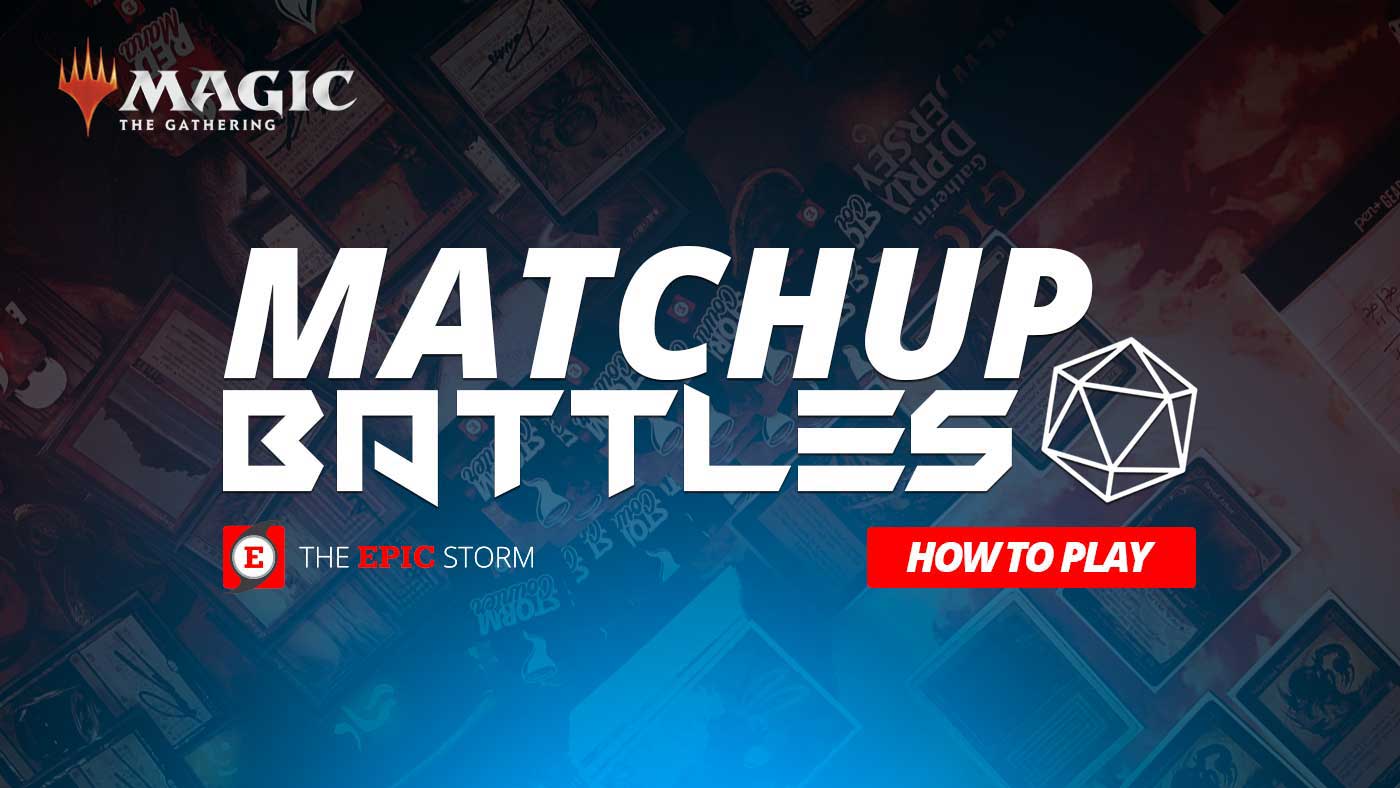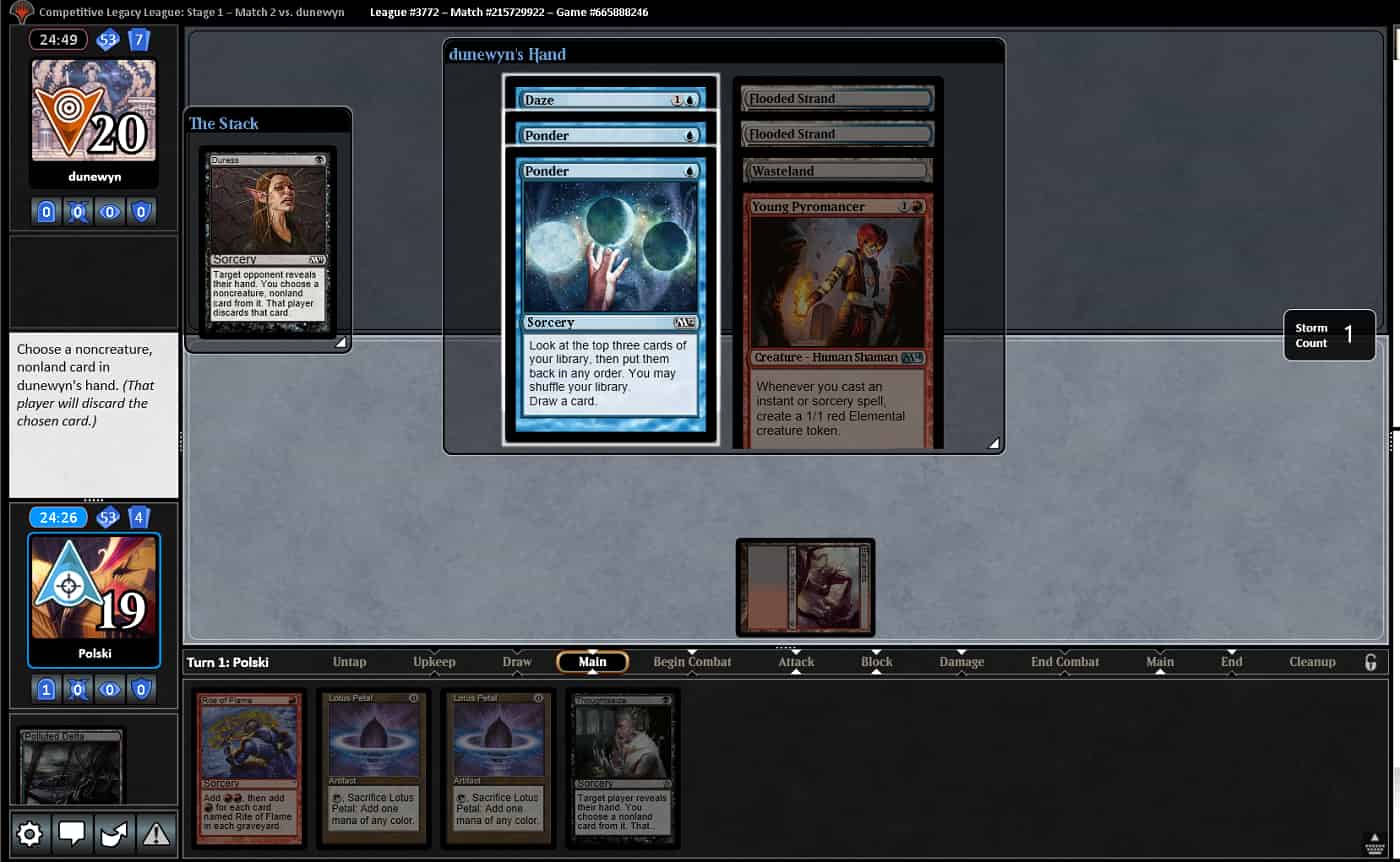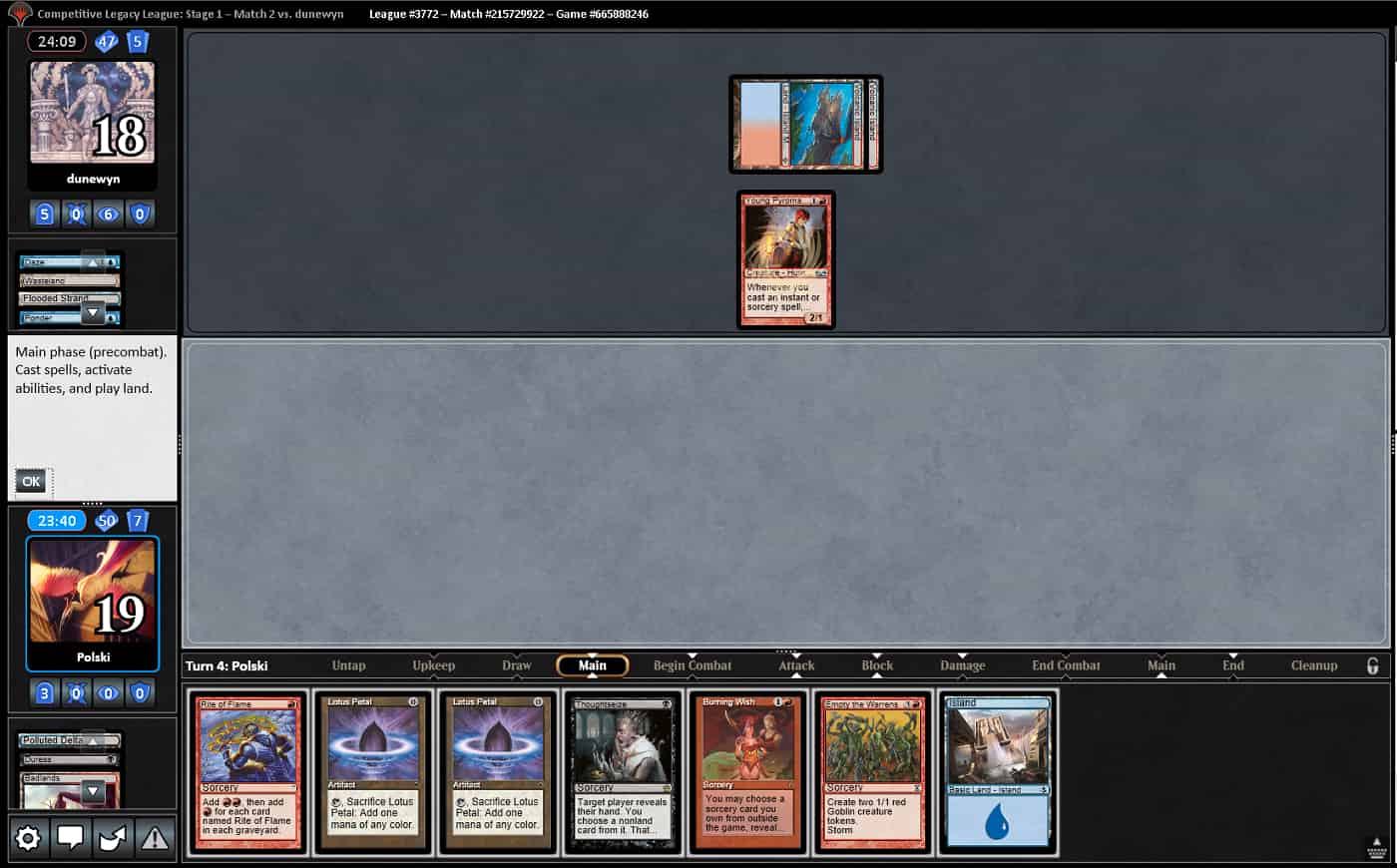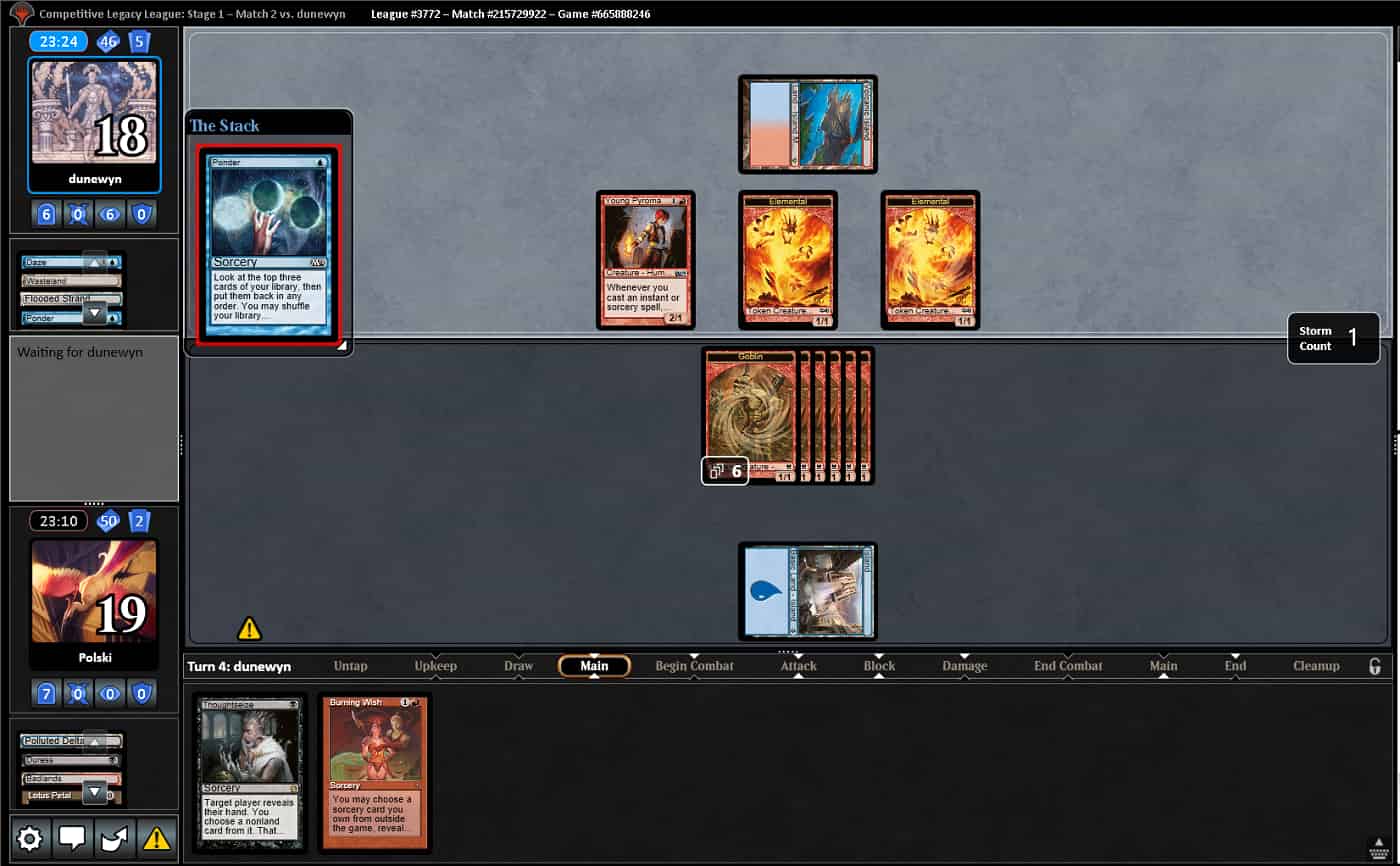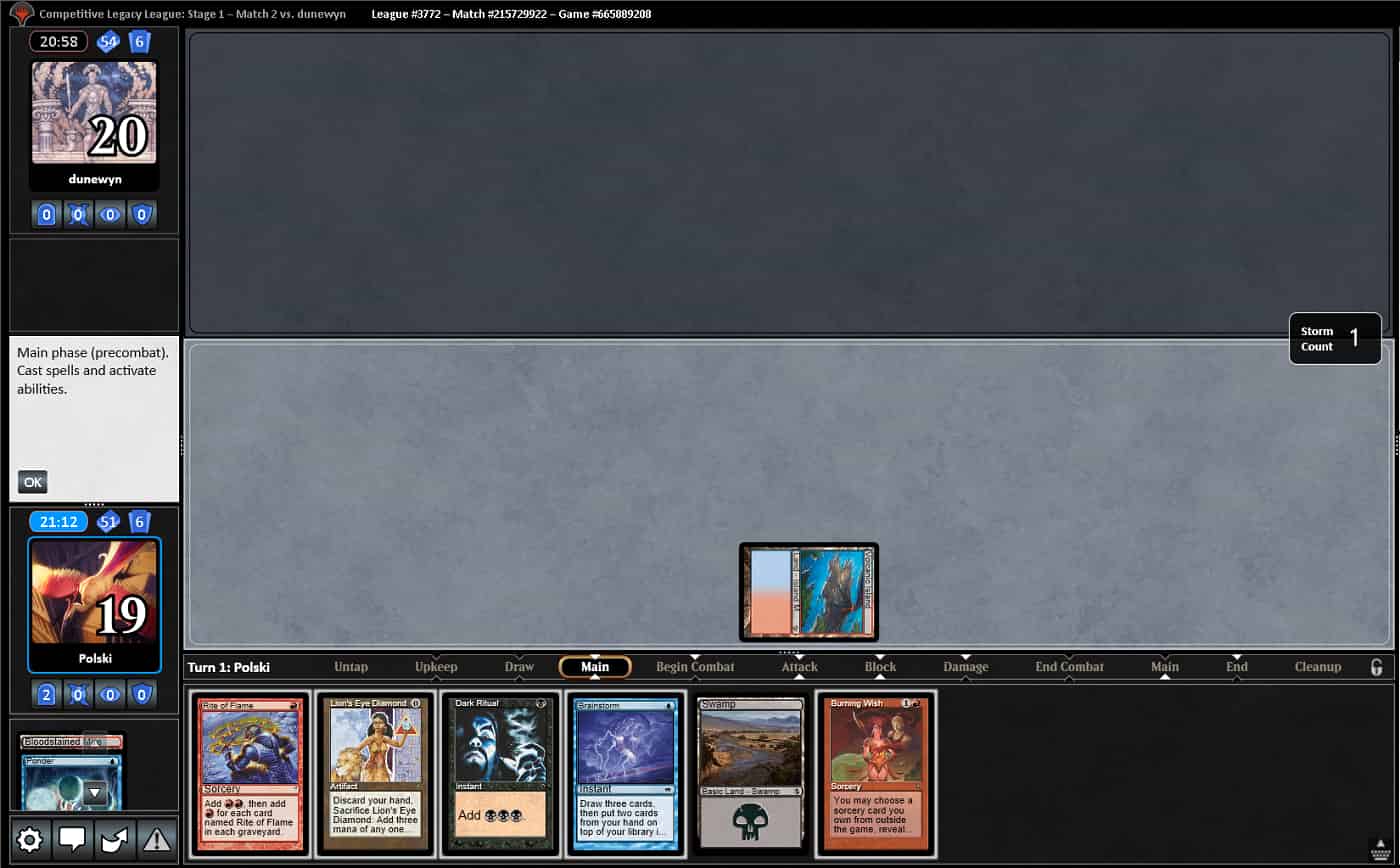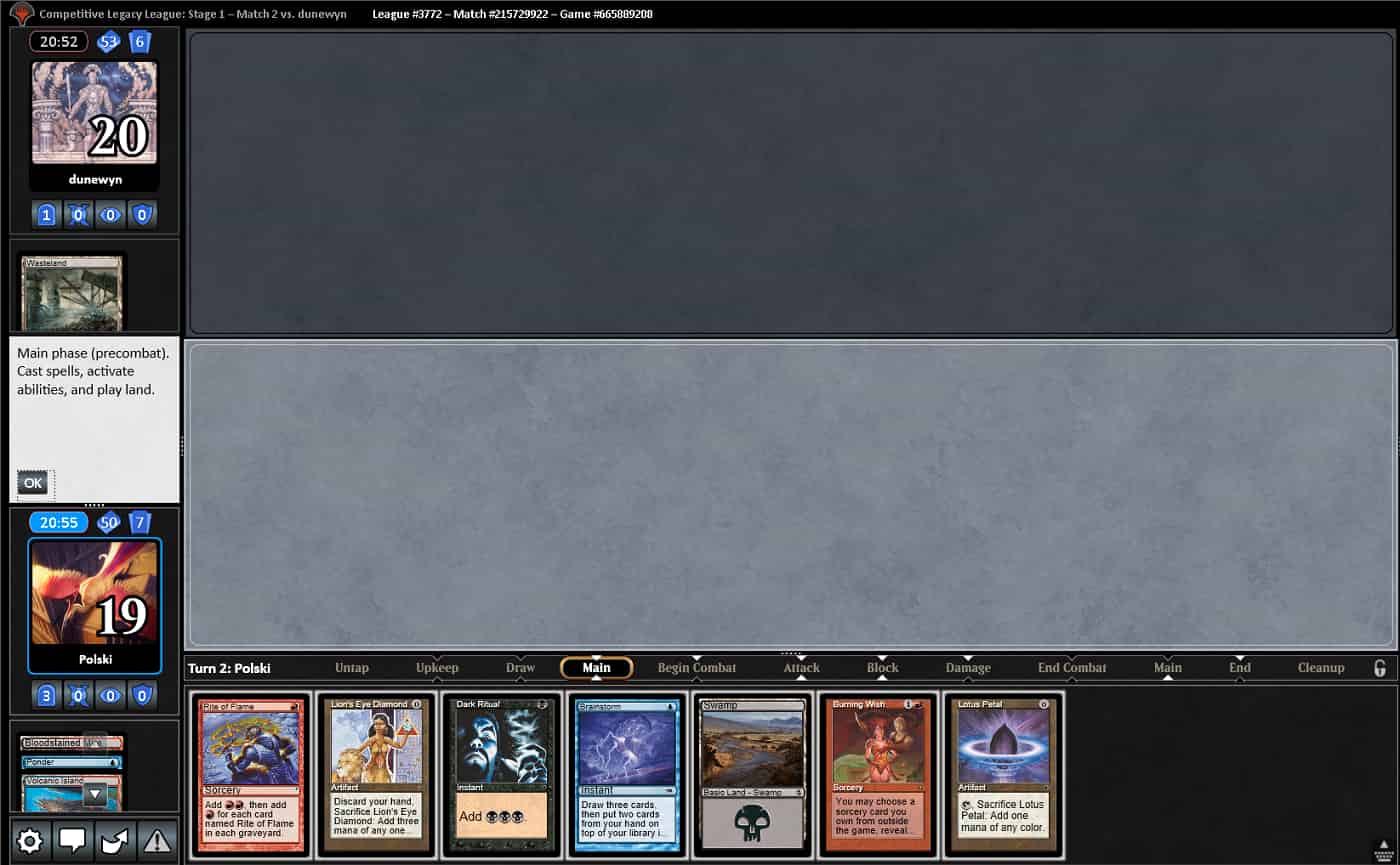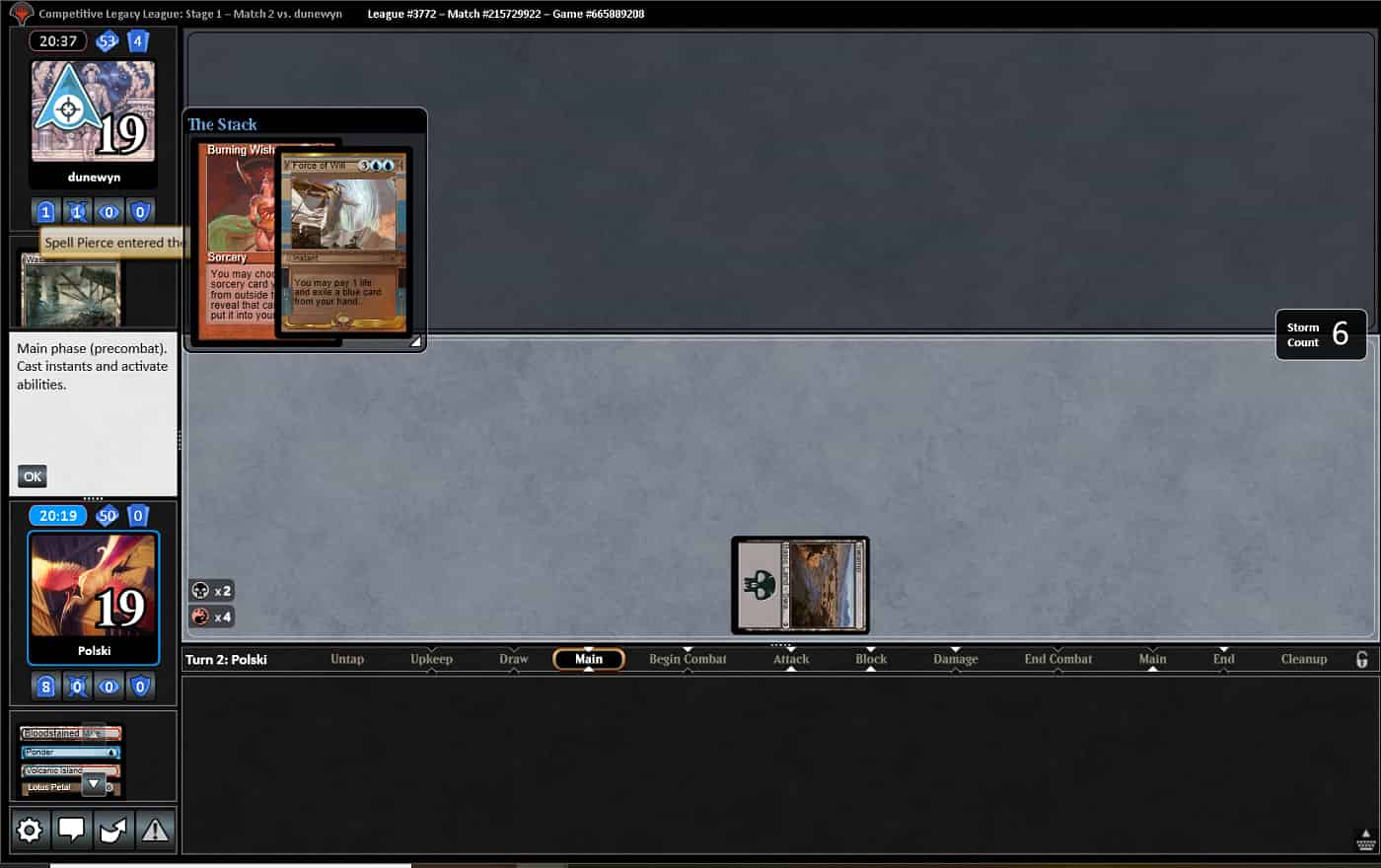UR Delver is obviously a blue-red deck that combines Aggro-elements of Burn, with Tempo-elements of RUG Delver. Utilizing its red cards to be aggressive and kill the opponent quickly, and the blue cards for interaction and to be tempo based with counterspells. It can be described as a counter-burn deck. Trying to put the opponent on the back of their heels with aggression, while slowing the opponent deck for a couple of turns to be able to finish them off. UR Delver hasn’t been as popular the past couple of years, but with the recent printings of Pteramander and Light Up the Stage it appears to be on the incline with a 1st place finishing at SCG Open Syracuse. With the deck increasing back in popularity and taking on a new direction we need to be prepared.
How does UR Delver matchup against TES?
Delver of Secrets, Pteramander, Young Pyromancer – These are the creature threats that UR Delver uses to put fast pressure on the opponent. Their ultimate goal is to use these threats along with burn spells to try to end the game early. We should be fairly familiar playing against Young Pyromancer and Delver of Secrets from other popular Legacy decks, but Pteramander is a new one. It is one of the reasons for the resurgence of UR Delver. So, how does it affect us? It gives UR Delver higher quality of cards over like Stormchaser Mage or Monastery Swiftspear. Those cards are at their prime on exactly turn 1 or turn 2, where Pteramander can still be a great threat on turns 4 or 5. This means even if the game gets into the mid game the opponent can just top deck 5 power. That’s pretty rare for an aggressive deck. Also, the flying mechanic can become huge here. It means even if we make a dozen goblins the ability to just fly over the horde can help them win the race. We can no longer just chump with one goblin and keep attacking.
Chain Lightning, Lightning Bolt – Because UR Delver is the most aggressive on the Delver of Secrets spectrum of decks it would only make sense they would be packing burn spells. Lightning Bolt isn’t that rare of a Legacy card, but Chain Lightning? That’s usually unique to just Burn. By playing Chain Lightning in your Legacy deck it shows your commitment to aggression and that your deck has one goal in mind: to end the game quickly. These types of cards force us to have fast opening hands. We can’t be spending the time to cantrip four times and use tutors to sculpt our hand for several turns. The longer the game goes the worse our Ad Nauseam becomes with a lower life total to play with. Empty the Warrens also gets worse as the game goes, because they can get us to a low enough life to just burn us out.
Force of Will, Daze, Flusterstorm, Spell Pierce – UR Delver plays the typical counterspell suite that we see out of many other decks. We should be fairly familiar with playing against these cards. But they only play Force of Will, Daze, and sometimes Spell Pierce in the main deck with Flusterstorm in the sideboard. The main difference with playing against these cards in UR compared to against Grixis or Miracles is the time you have to try and beat the counters. UR Delver is going to be trying to kill us several turns before those other decks. That means we don’t get the luxury to just “wait another turn”. Waiting to play around cards like Daze or just sitting until you find a discard spell is a lot harder to do against UR Delver. The amount of time we get is shortened significantly, and that just makes their counters that much more effective. Sometimes you just have to play into them and hope they don’t have it.
Wasteland – Recently, I’ve learned my lesson playing against UR Delver and being tagged by a Wasteland. The deck UR Delver has been around, in different variations, for several years, but never played Wasteland. Now all of a sudden they are. Unless you’ve been reading decklists online you wouldn’t know they’ve been adopting it. I was playing against UR Delver like they didn’t have Wasteland and then all of a sudden I lost because of it. It’s important to realize it is now popular in their deck, and we have to adjust our play to consider it. Other decks in the format are evolving and decklists may change, so it’s important to not get in the mindset that just because you knew what a decklist looked like in the past then that means you know what it looks like now.
Deck List
Main Deck
- 4 Burning Wish
- 4 Infernal Tutor
- 4 Brainstorm
- 4 Ponder
- 4 Thoughtseize
- 3 Duress
- 1 Empty the Warrens
- 1 Ad Nauseam
- 4 Polluted Delta
- 3 Bloodstained Mire
- 2 Badlands
- 1 Underground Sea
- 1 Volcanic Island
- 1 Swamp
- 1 Island
